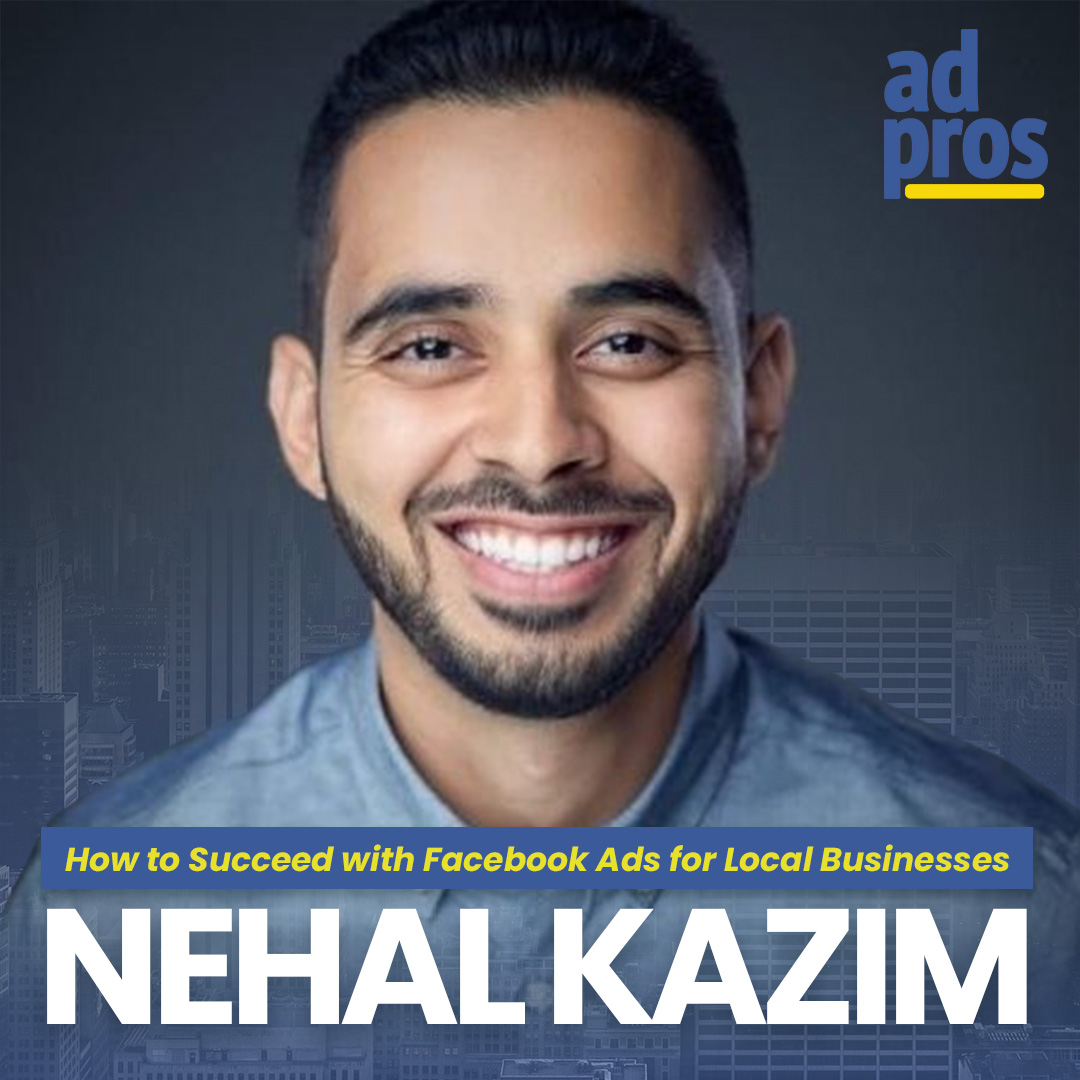In today’s episode, Clarence talks with Nehal Kazim about how to use Facebook ads for local businesses to get more leads and grow sales. How do you know your ads are working? Should you manage your campaigns in the house or hire an agency? Nehal, the founder of Adpros, answers these questions and more.
You'll also hear…
- A proven strategy to win with Facebook Ads for Local Business
- How to tell if you’re winning or losing
- How to scale successful campaigns
So listen here to learn how to use Facebook marketing to grow your local business.










